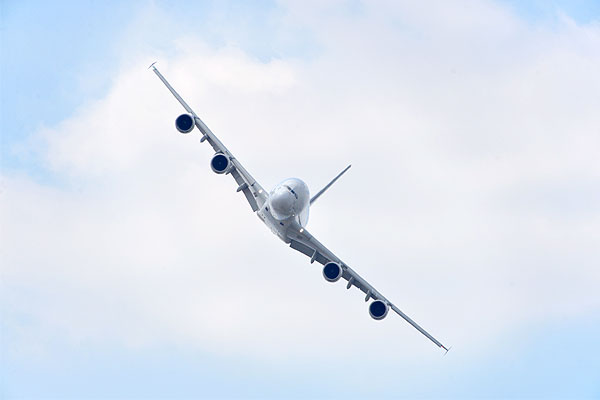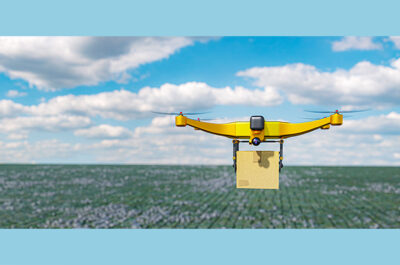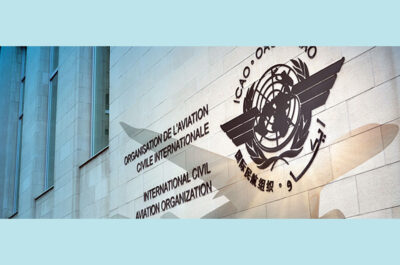‘After 6 years of intense negotiations amongst ICAO’s 191 Member States, this historic agreement opens a new chapter,’ says Olivier Jankovec, Director General of ACI Europe. IATA, IACA and ERA also greeted ICAO dealn with enthousiasm.
BRUSSELS – European airport trade body ACI Europe reacted with enthusiasm to the landmark agreement reached at the International Civil Aviation Organisation (ICAO) on a global Market Based Measure (MBM) addressing airlines’ carbon emissions. The resulting carbon offsetting and reduction scheme will be a key element to effectively addressing the impact of aviation on climate change, in addition to efficiency improvements in technology, operations and infrastructure – both in the air and on the ground.
Olivier Jankovec, Director General of ACI Europe commented “Yesterday was a good day for aviation and for our planet. After 6 years of intense negotiations amongst ICAO’s 191 Member States, this historic agreement opens a new chapter, finally putting global aviation in a condition to march towards carbon neutral growth – as a first step. But yesterday was actually also a good day for Europe. The EU has played a leading role in achieving this result, ensuring wider pan-European alignment with all ECAC States and sparing no effort to reach out and convince other nations to back the agreement.”
He added “For their part, Europe’s airports will continue to play their part nin reducing their own carbon emissions, working through Airport Carbon Accreditation – the global airport industry carbon management standard supported by the UNFCCC and ICAO. Across our continent, 113 airports are now certified under the programme, and they collectively account for an impressive 66% of European passenger traffic. So far, 24 of these airports are carbon neutral – and ACI Europe firmly committed at COP 21 last December to raise that number to 50 by 2030.”
IACA welcomes the historic ICAO agreement on aviation CO2 emissions
The International Air Carrier Association (IACA) congratulates the International Civil Aviation Organization (ICAO) and its Member States for reaching an agreement towards a global market-based measure in order to stabilize aviation emissions in the future.
After years of intensive debate, the 191 Member States of ICAO decided on the design of a Carbon Offset and Reduction Scheme for International Aviation (CORSIA), a precedent that covers an entire industry sector.
This scheme will be a key part of the aviation industry’s four-pillar strategy on mitigating the effects of climate change, together with improvements in technology, operations and infrastructure.
The ICAO scheme will be voluntary at the level of States till 2026, but will nevertheless result in an obligation on airlines to offset 83% of their world-wide emissions above 2020 levels between the years 2021 and 2035. IACA underlines that this agreed global framework offers a better alternative compared to a potentially complex patchwork of regional and national systems.
IACA is confident that the European Commission will recognise the high level of ambition of CORSIA, and will propose that it replaces the EU-ETS.
Airlines Hail Historic ICAO Carbon Agreement
The International Air Transport Association (IATA) congratulated states which, under the leadership of the International Civil Aviation Organization (ICAO), have achieved an historic agreement to implement a market-based measure that will support airlines’ efforts to stabilize emissions with carbon neutral growth.
"The historic significance of this agreement cannot be overestimated. CORSIA is the first global scheme covering an entire industrial sector. The CORSIA agreement has turned years of preparation into an effective solution for airlines to manage their carbon footprint. Aviation is a catalytic driver of social development and economic prosperity – it is the business of freedom making our world a better place. This agreement ensures that the aviation industry’s economic and social contributions are matched with cutting-edge efforts on sustainability. With CORSIA, aviation remains at the forefront of industries in combatting climate change," said Alexandre de Juniac, IATA’s Director General and CEO.
CORSIA is set to commence with a voluntary period (2021-2026) after which it will become mandatory. "The enthusiasm and commitment of states in the voluntary period is impressive. Even states that would normally not be required to participate – small island nations and developing economies – have shown their commitment by signing up. The list of states volunteering for the first phase now numbers 65, giving CORSIA which we estimate will cover more than 80% of growth post 2020. And we continue to encourage more states to join," said de Juniac.
By itself, CORSIA will not lead to a sustainable future for aviation. Along with this global market-based measure, the industry will continue to drive its four-pillar strategy on climate change, comprising improvements in technology, operations and infrastructure, complemented by CORSIA.
"Today’s agreement shows what can be accomplished when we work together. The aviation industry understands that sustainability is critical. Airlines will continue to invest in new technology – particularly new aircraft and sustainable alternative fuels – to improve their environmental performance. And we will continue to ask governments to do their part with investments to modernize air traffic management and with supportive polices to help commercialize sustainable alternative fuels for aviation," said de Juniac.
To ensure that CORSIA is fair and without market distortions, the scheme will include provisions to deal with special circumstances such as those of fast-growing airlines and airlines which have made significant investments to improve environmental performance already.
"This agreement marks the end of the process to gather the political will to implement a global market-based measure for aviation. There is still a lot of technical work to ensure effective and efficient implementation; and to ensure the environmental integrity and administrative simplicity of the scheme. In the coming years we will be working closely with ICAO on capacity-building both for regulators and the industry," said de Juniac.
ERA welcomes the agreement reached at the ICAO Assembly
ICAO’s member states reached agreement yesterday on a new global market-based measure (GMBM) to address CO2 emissions from international aviation. Please see a statement from ERA below regarding the agreement.
- ERA welcomes the work and the agreement by ICAO. It is a breakthrough to have achieved this international agreement and something ERA has been supporting through the work of IATA and ATAG at an international level.
- ERA will be examining the detail of the ICAO agreement in the coming days.
- ERA will be discussing the implications of the ICAO agreement on the future of the EU Emissions Trading Scheme (EU ETS) with our members at our upcoming AGM on 13 October.
- We will be releasing a position after our AGM on the future of the EU ETS system for aviation.
Simon McNamara, ERA Director General, says: “After several years of hard work, ICAO member states have agreed a landmark agreement on international aviation emissions and they are to be congratulated on that. It is something that the industry, including ERA, has been supporting. We are now looking at the detail of the agreement to understand its implications on the future of the EU ETS for aviation, and will be discussing the matter with our members at our upcoming AGM on 13 October, where we will be releasing a detailed position with our views on the future of the EU ETS for aviation.”
Tatiana is the news coordinator for TravelDailyNews Media Network (traveldailynews.gr, traveldailynews.com and traveldailynews.asia). Her role includes monitoring the hundreds of news sources of TravelDailyNews Media Network and skimming the most important according to our strategy.
She holds a Bachelor's degree in Communication & Mass Media from Panteion University of Political & Social Studies of Athens and she has been editor and editor-in-chief in various economic magazines and newspapers.





















































































































































































